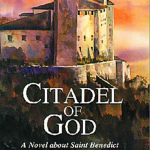Full Fathom Five is the third book in Max Gladstone’s Craft Sequence, following Three Parts Dead and Two Serpents Rise. Gladstone has invented a world where “gods” are real and where “soul” is a kind of energy that can increase, decrease, and be transferred from one person to another. People generate soul-stuff naturally over time; Gods receive soul-stuff from their worshippers, and provide comfort and services in response. At some point in living memory, someone figured out the science and... Read more




















